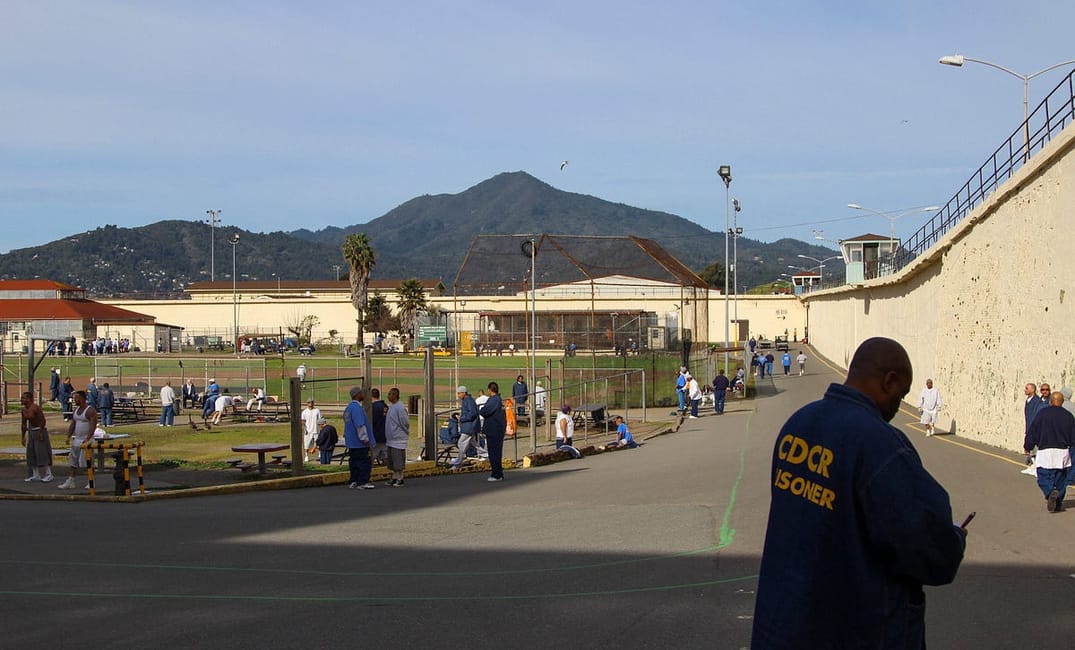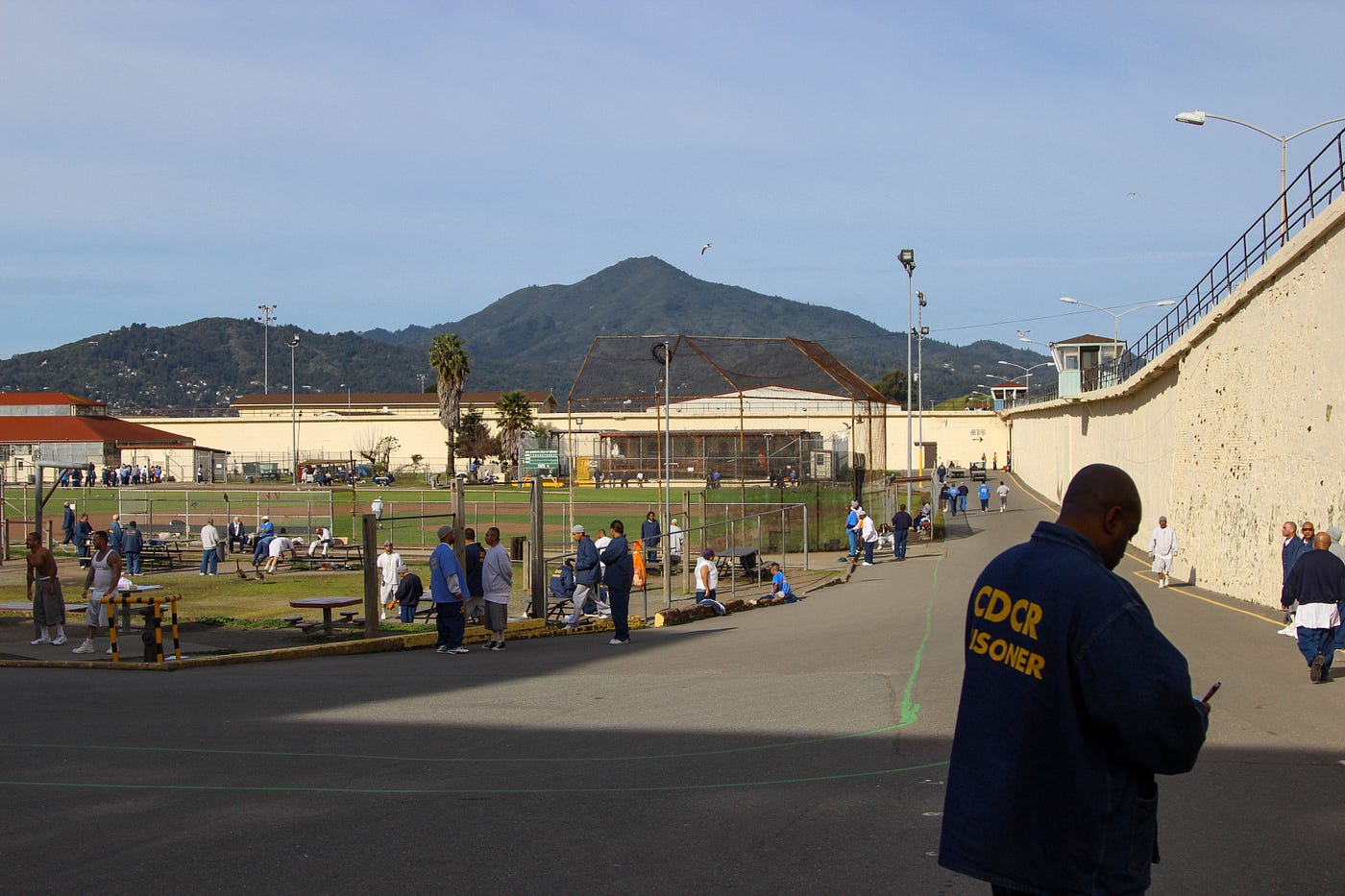
Just 12 miles past the soaring vistas of the Golden Gate Bridge sits the fortress-like San Quentin prison. Surrounded by water, beneath Marin’s rolling hills and Mt. Tamalpais, there is a cruel irony to being interned so close to this scenery, yet with no way to see it. Built over a century ago, San Quentin is the oldest prison in California and is home to all the state’s death-row inmates.
We’ve come here to meet the participants of the Last Mile — a flagship program that teaches prisoners how to code — at their Demo Day, or program graduation. While I’m still trying to remember how I edited the code on my Myspace page to have orange text, these men are engineering programs for companies like Airbnb and writing in more coding languages than most of us have even heard of. It’s all the more impressive, given that many of these men have never even used the Internet (some were sentenced before it was commonplace).
With a zero-percent recidivism rate and expansion of the program into other state prisons, the Last Mile has been lauded as one of the prison system’s greatest success stories. Meet the prisoners who are learning to code behind bars.
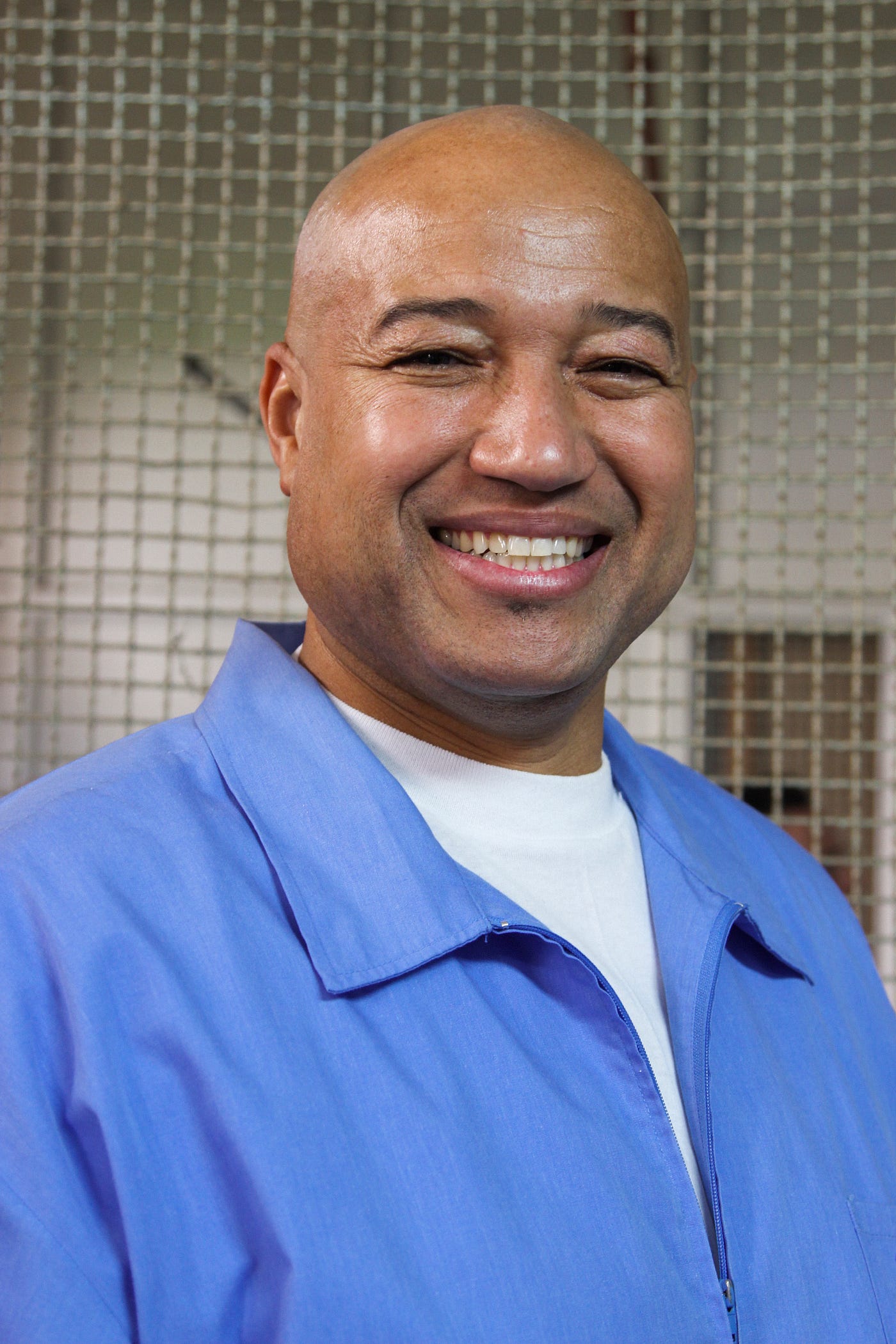
“I gotta smile for the photo in case my mom sees it!”
Damon Cooke has been incarcerated for 28 years and in that time has become a mentor, role model and beacon within the prison. Other inmates regard him with the kind of respect that can only be earned. He is a program manager for the Last Mile and a teaching assistant for the coding classes. “It’s hard for new inmates,” he explained. “I’m a different person now,” Damon said. Indeed, it is difficult to wrap our heads around the circumstances that led him to San Quentin — the man who stands before us has an almost monastic sense of gratitude and was referred to as a leader by many of the inmates.
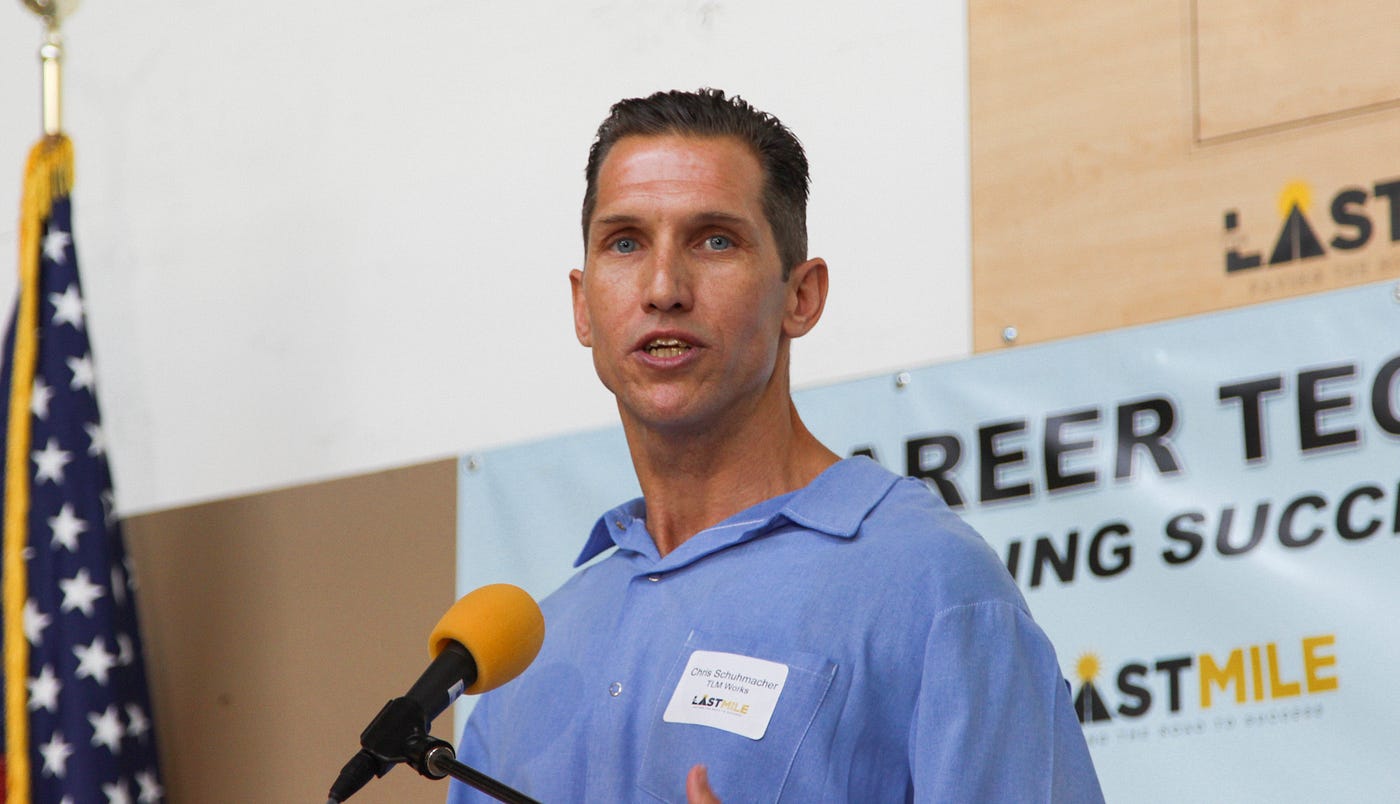
“Learning to code without the Internet is like memorizing a cookbook without ever getting into the kitchen.”
Chris Schumacher is a past graduate of another coding program for inmates and participated in the Last Mile Works, a program that pays inmates for their programming work. Chris managed a team working on a deliverable to Airbnb — a social media dashboard updating their stats in real time.
Chris has been found suitable for parole and will be released in just a few weeks. When he announced this, he had to take a moment to collect himself. The graduation attendees did the same.
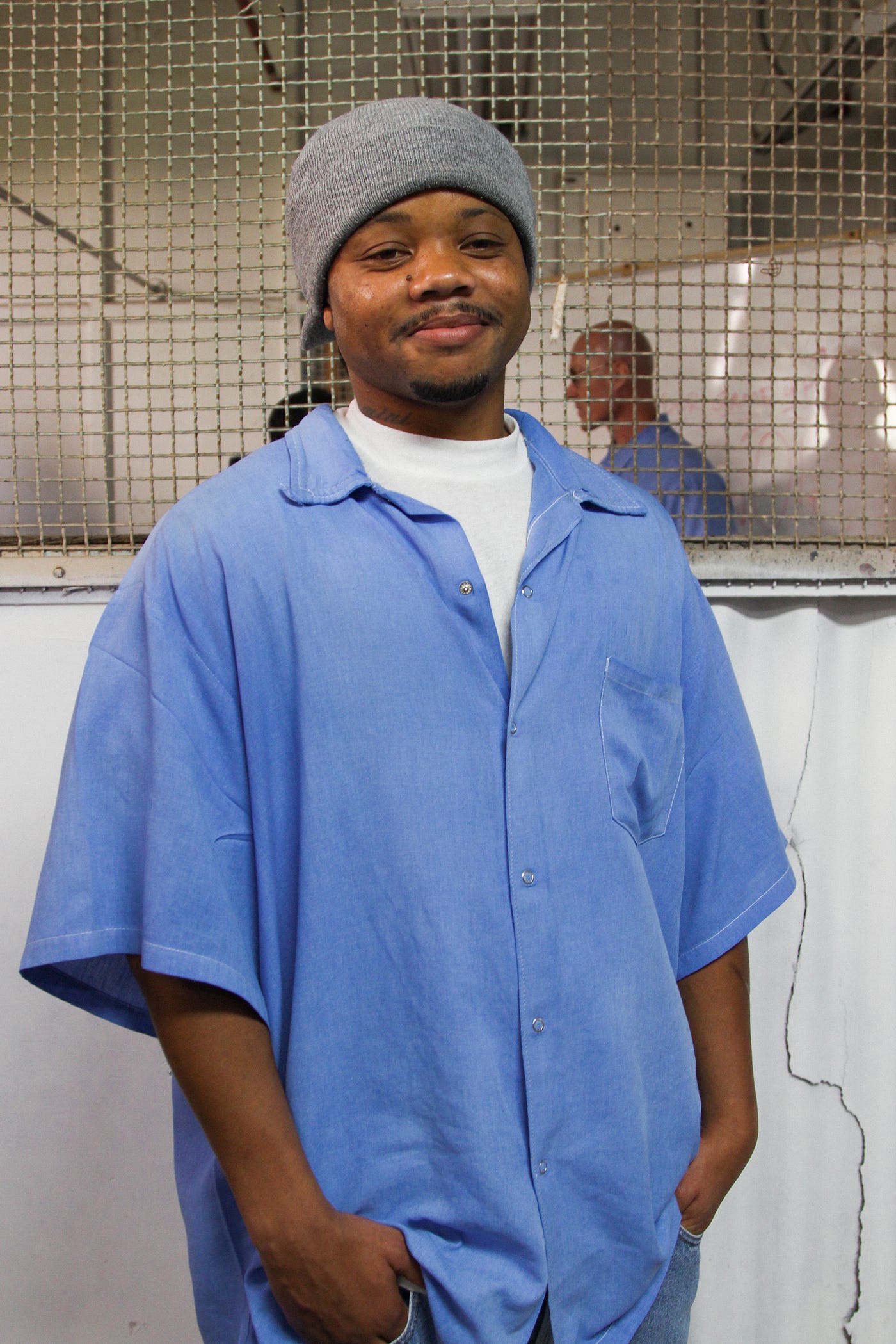
“My name is Cordiare, and I’m scared to death right now.”
Cheerful, earnest and slightly bashful, Cordiare McDonald described learning to code as a reimagination of what it means to be patient. He described his tendency to solve life problems by cutting corners. “In coding,” he said, “you have to believe in the process. You can’t debug without taking the time to understand how everything fits together.”
“Life works the same way,” he added. “Men like myself must believe in their ability to succeed.”
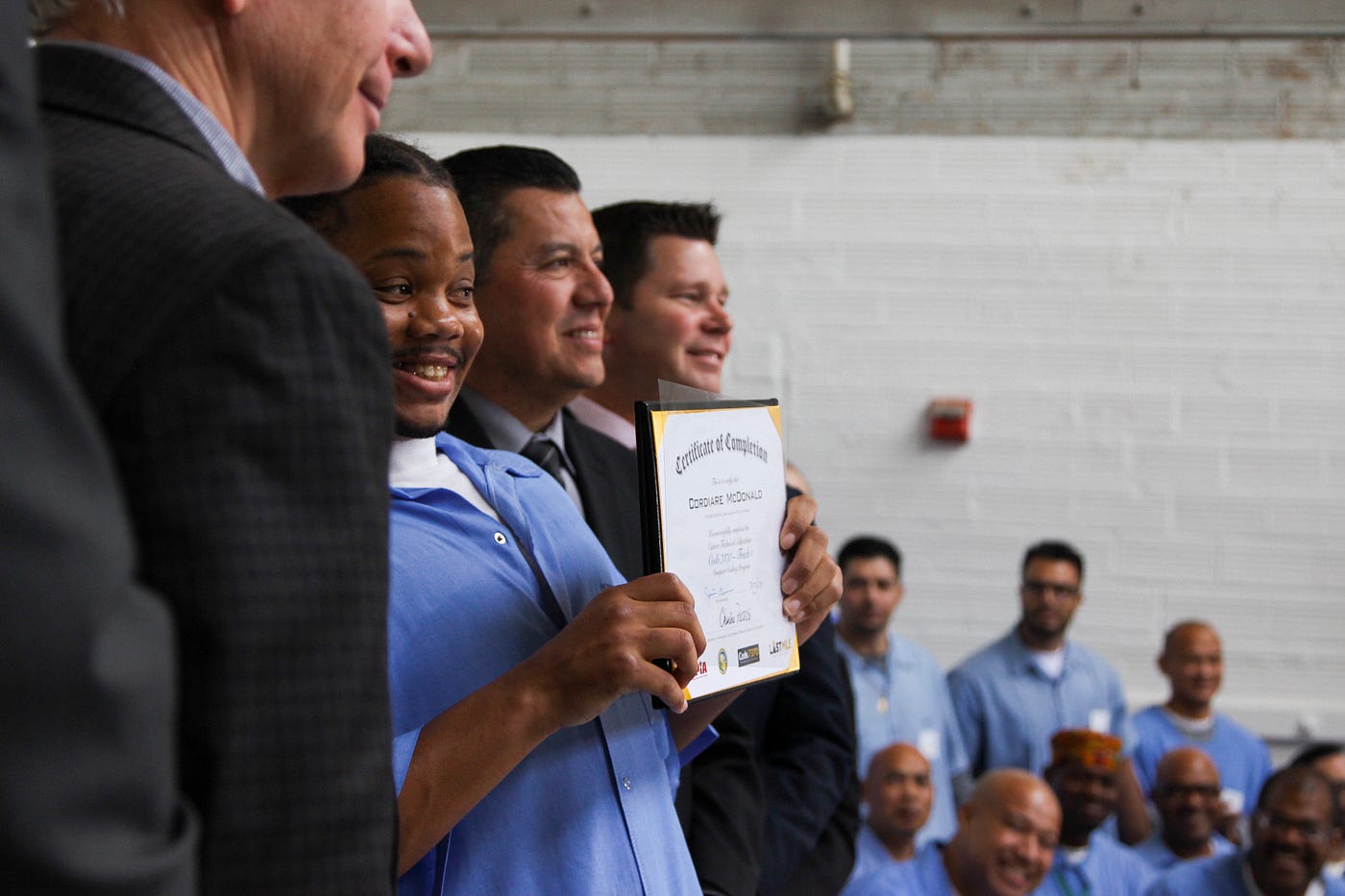
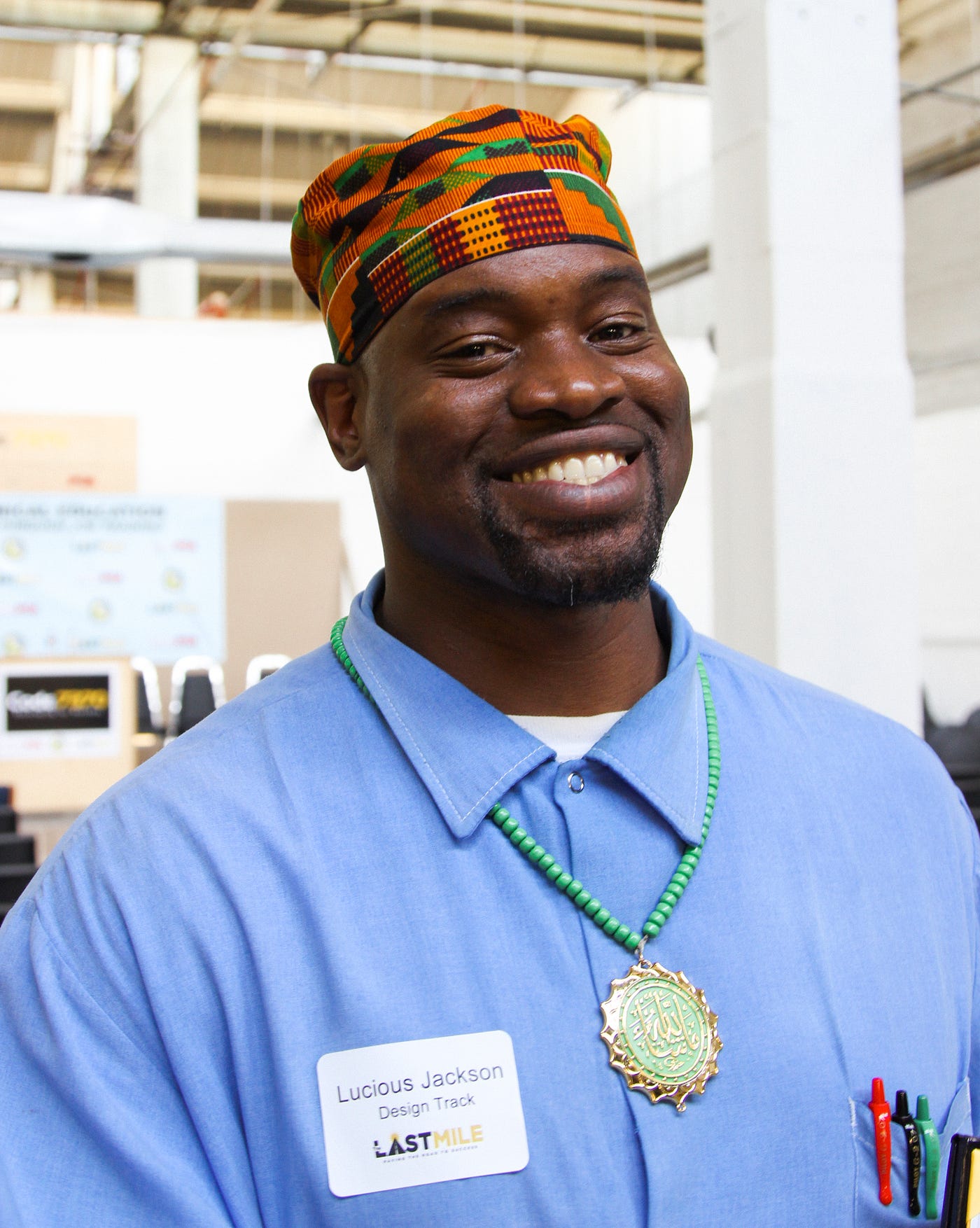
It was clear from his attire that Lucious Jackson was proud of his heritage (even the colors of the G2 pens in his pocket were lined up to match the colors of the Pan-African flag). He didn’t tell us about the program or his history with San Quentin, other than that he arrived as a result of the Three Strikes law. Instead, he shared how much he misses his family, how much he appreciates his mother and daughter visiting him, and how it will feel to be able to be reunited under the same roof with his wife. Often, families of the incarcerated will completely abandon them, he says. “I’ve seen it happen,” Lucious explained, “and I’m so lucky.”
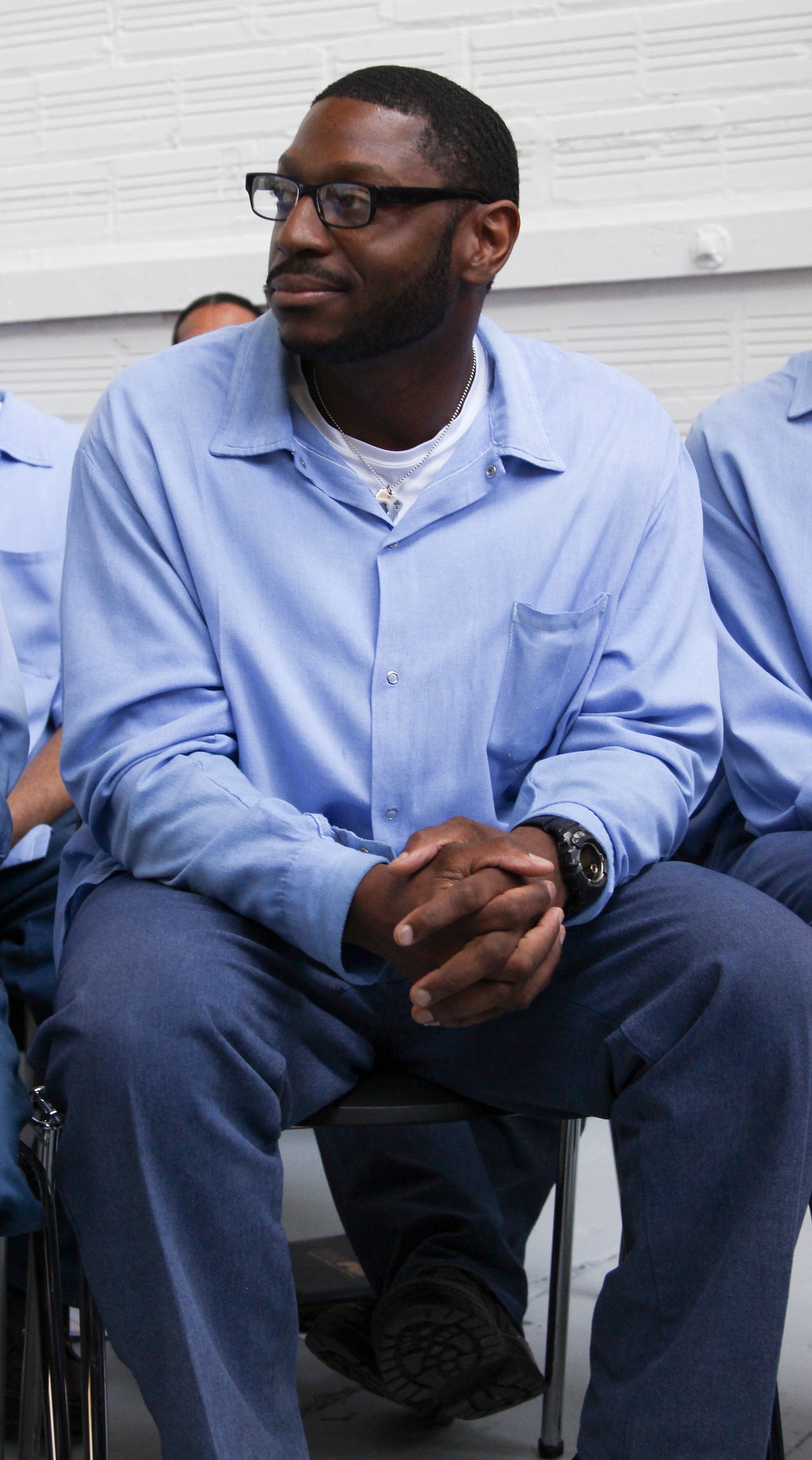
“I knew that my freedom was gonna come; it was just a matter of time. And so I treated my first steps as if they were my last mile, and I realized that you don’t have to be free in order to experience freedom.”
James Cavitt is a powerful spoken-word poet who performed with John Legend at TED Talks last year while still an inmate. He delivered the same poem, “Where I Live,” at the Last Mile graduation, and some of his lines were seared into us. Of the program, he orated, “Where some saw convicted felons, you saw computer programmers.” The audience fell into silence as he declared, “Just because you’re free doesn’t mean you have freedom…We’re all serving time; we’re just in different places…Freedom: it isn’t a place; it’s a mindset.”
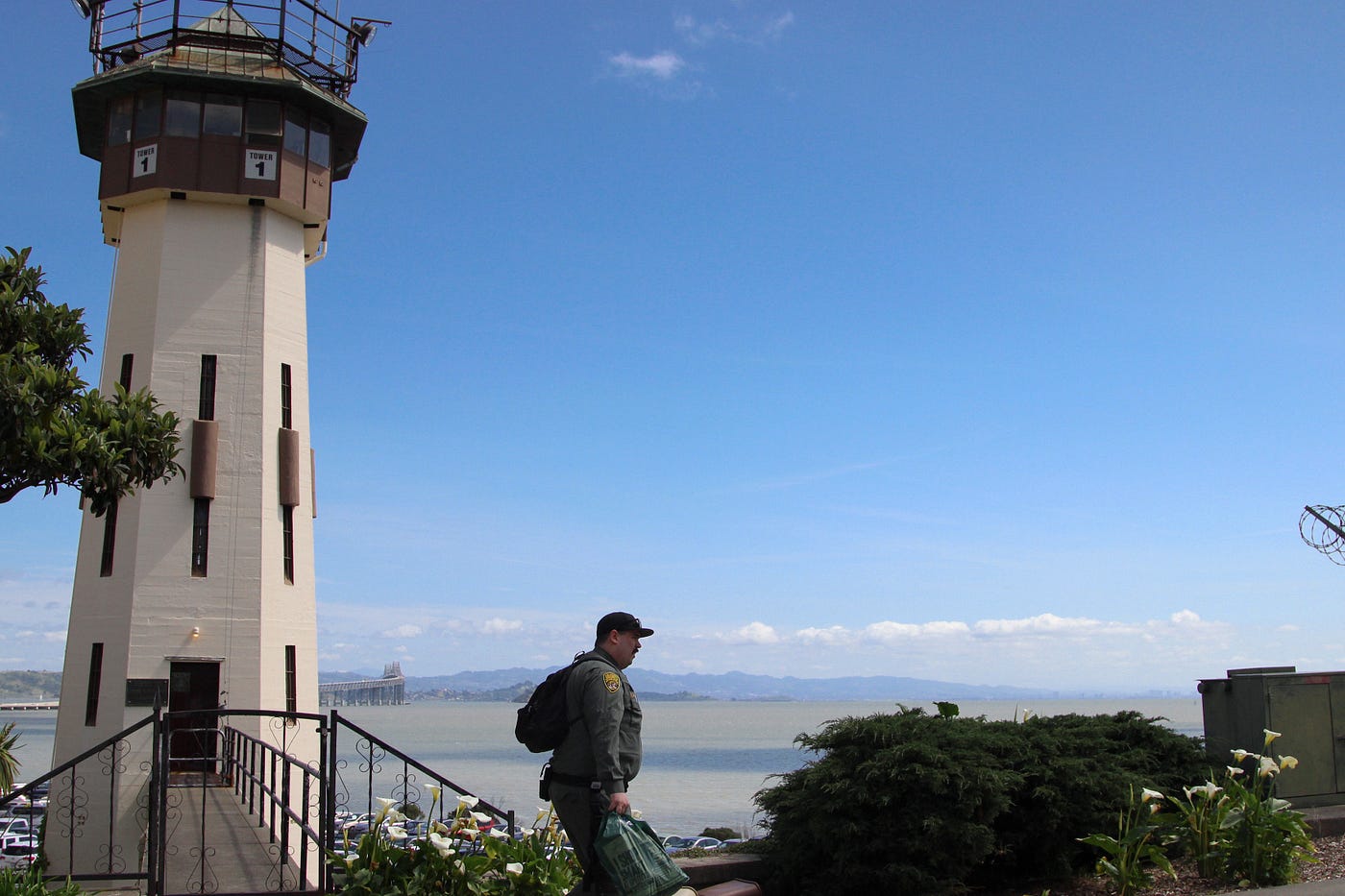
Text by Kristi Chan and Nicole Clark; photos by Kristi Chan.



